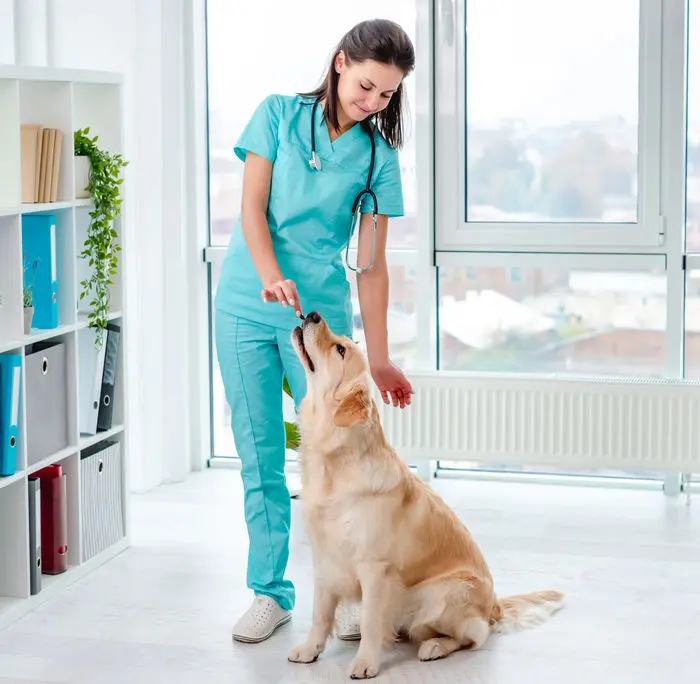If you are thinking about owning your own veterinary practice, then it is most likely due to the passion you have for your craft and animals. You have made the decision to devote your life to the health and wellness of animals. On the other hand you must understand what all goes into owning a practice outside of the medical aspects. You need to have an understanding of the financial logistics in order to have a successful practice. It is very important to remember that just because you are buying an existing practice with a built-in customer base, doesn’t mean you will have guaranteed success.
On one side, you are evaluating the likelihood of you growing professionally in your practice. And on the other side, you are also navigating a sometimes-complex business transaction. No matter what, the main goal you are wanting to achieve is to have a practice that is fulfilling professionally and is a financially-sound investment. In order to help you achieve this we have provided some tips to get through the business side of the decision. Here are a few things you will want to consider before you buy a veterinary practice:
- Expanding your network:
Once you have figured out where you you want to establish your future practice then you will want to reach out and communicate with potential vendors and companies. This should be places like supply companies, veterinary-focused accountants and a small business banking specialist. Most of these vendors/companies have close relationships with established practices and may know vets who are approaching retirement age or who might consider adding an associate interested in purchasing their practice.Also keep in mind that once you have found a practice and have started having discussions with the practice owner, confidentiality is critical. You should also expect to have to sign a non-disclosure agreement in order to protect both parties’ in regards to financial and personal information, and to avoid raising patient and staff concerns. - Developing a budget:
Budgets are a healthful tool in every aspect of life. From student loans to living expenses, preparing a budget can help you figure out your personal expenses as well as let you know how much you’ll need to earn from your practice. In addition to the salary you are earning, the net income from your practice will need to cover the loan payment for your practice as well. The information that you get from your budget can help give you insight on things like what size practice you should be looking for. There will also be some additional considerations that you will need to factor in, depending on your situation. For example, you might need to ask the original vet to stay on temporarily to help with the transition. If this is the case will they need to be compensated? These kinds of you things can be figured out by going over your budget and it can be helpful to share your budget with your banker as you are figuring out your financial options. - The existing staff is a resource:
Taking over an existing practice comes with a huge resource- existing staff. You are acquiring the support staff, which includes things like billing staff and others. These professionals will not only help ease the transition for current patients but also maintain an understanding of the business systems used to operate the practice. The institutional knowledge that they have can be vital to your long-term success. These employees have established relationships with not only clients but the existing vendors and companies. They know how things are run can shine some light on what works and what doesn’t. They are a valuable asset that shouldn’t be overlooked. - Take Visits:
Not every veterinary practice is the same. From things like staffing to its patient flow, is it all different. This is why it is important to get first-hand looks of any practice that you are considering to purchase. You want to pay a visit in person in order to get a thorough overview of the practice. You also want to find out some information about the past about the practice. Things like how many patients have visited the office over the past 18 months. You also want to get a sense for whether the practice is appropriately staffed. also getting insight on things like patient flow and cash flow can help you figure out if the practice is growing, stable or shrinking. Keep in mind that a shrinking practice may not necessarily be a deal-breaker if you’re able to identify the problem. - Reviewing the Finances:
This might seem like an obvious step to make but before you make an offer, you should take the time to investigate whether the practice is a good investment. You should seek advice from professionals who have a history in valuing and financing these kinds of transactions, like a small business banking specialist. They will review financial statements, tax returns and other records and compare the practice’s finances with national benchmarks. - Determine your offer.Your financial offer is only one of many details that must be agreed upon when you purchase a practice. There are also property, equipment & staff considerations, transition details and more. But your financial offer is the best place to start. Because emotions can run high – especially if the owner thinks the practice is worth more than the financial records support – it is best to make an “offer to purchase” through a third-party professional.With a financial agreement in place, both you and the seller will be more motivated to negotiate the other details.
- Owner-financing may be risky.Once your offer is accepted, you’ll need to obtain any financing required to complete the purchase. If the selling veterinarian offers to self-finance the purchase, proceed with caution. A seller has less incentive to bring in a knowledgeable third-party to assess the veterinary practice valuation or asking price. After all, the sale will likely finance the seller’s retirement, which could make him or her more invested in getting a certain result.Many vets find that their bank provides a more neutral route to financing. Your banker will ask for several documents to support your loan application: tax returns for the previous two years, a statement of your net worth and a copy of your veterinary license and resume, for starters.From the seller, your lender will want a copy of the practice valuation, along with tax returns, profit and loss statements, and depreciation details. The practice business plan, budget and patient count may also be requested.
- The real estate purchase or lease negotiation is a separate transaction.Your purchase of the practice is a separate transaction from the purchase or lease of the veterinary office. Be forewarned: your lender will require a lease – including extensions or renewal options – equal to the term of the loan.Your banker can be of great help with real estate considerations as well. As with every part of the acquisition process, the key is to involve them early. They have a vested interest in helping you succeed.The process of buying a veterinary practice can be a bit daunting, but by doing your due diligence, you’ll be more likely to line up a practice purchase that works for you. Just remember to seek help early, assess the value and health of the practice and make sure your financial needs are met as well.
Now that you have read some basic tips and things to consider you are ready to purchase a vet practice. After you have found a place that meets your needs you will still need to make on offer, secure financing, sign the practice sale agreement and lease, and complete the purchase. As you can see a lot of important factors go into this decision. Make sure you are being properly advised. Practice Advisors 360 is the nation’s leading dental advisory company. Contact us today at (844) 360-8360 or visit us online at practiceadvisors360.com






